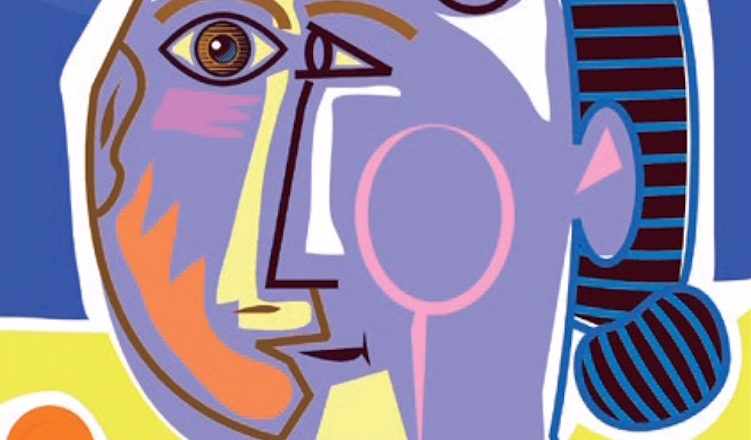
Celebrities like the Kardashians and Elton John are increasingly normalising surrogacy. Can’t make your own baby? Find yourself a ‘gestational carrier’ to do it for you. Simple. When we see surrogacy discussed in the global media, it’s in the form of feel-good stories about babies for couples that are desperate for their own child but unable to have one naturally. What’s not discussed is where, and more importantly from whom, the baby comes.
In the few countries where commercial surrogacy is legal (Ukraine, Georgia, Russia and 11 states in the United States), the woman who carries the baby is called the ‘gestational carrier’, surrogate or surrogate mother. But these terms are entirely inappropriate, as there is nothing ‘surrogate’ about the process.
A surrogate gets paid between $20,000 and $35,000, which amounts to less than $4 per hour. For the commissioning parents–I call them ‘baby buyers’–the surrogacy can easily cost $100,000 or more, because often the birth mother does not get pregnant or miscarries, so the process needs to be repeated more than once. Meanwhile, most of that money feeds the surrogacy industry–IVF clinics, lawyers, counselors, egg ‘donor’ agencies, lobby groups and other intermediaries–who are exploiting this latest business opportunity in order to line their pockets.
In my book, Surrogacy: A Human Rights Violation, I describe everything that’s wrong with the surrogacy industry. I suggest that however great the pain caused by infertility, or however great the desire to have one’s ‘own’ genetic child, nothing in the world can ever justify putting the bodies of two other human beings–the surrogate mother and the egg ‘donor’–at risk of short and long-term health problems that can be caused by IVF procedures as well as pregnancy and birth complications.
Surrogacy is a clear human rights violation. It is a practice of exploitation that violates a number of UN conventions and other international treaties. For instance, surrogacy can be likened to slavery, which Article 1 of the United Nations Slavery Convention defines as ‘the status or condition of a person over whom any or all of the powers attaching to the right of ownership are exercised.’
When a woman agrees to be a surrogate, she surrenders control over her life for the next nine months. The baby buyers (and their doctors) decide what she eats and drinks, who she has sex with and how often, how many tests she has to agree to in order to make sure the baby she carries has no ‘defects’, and how many vaccinations she has. If this ‘quality control’ reveals imperfections, she can be forced to undergo an abortion; if more than one embryo was implanted and develops, fetal reduction can be mandated.
As the Chair of the Scottish Council on Human Bioethics, Dr Calum MacKellar, puts it, ‘selling surrogacy is a step towards slavery as women are dehumanised.’ And the new Director of Spain’s Bioethics Committee, Federico de Montalvo, has made it clear that Spain will not be legalising surrogacy, an unethical practice, that ‘turns children into consumer objects.’
Surrogacy also profoundly violates the rights of the child, under the United Nations Convention on the Rights of the Child. Article 2 prohibits the sale of children, and Article 35 stipulates that ‘State Parties shall take all appropriate national, bilateral and multilateral measures to prevent the abduction of, the sale of, or traffic in children for any purpose or in any form’ [emphasis added]. In surrogacy, children are clearly sold.
It also contravenes Article 1 of the Optional Protocol to the Convention on the Rights of the Child on the sale of children, which obligates governments to criminalise the sale of children.
Proponents of surrogacy say that the birthmother is paid for her ‘services’, but this is blatantly untrue. If she miscarries or has an abortion, she will most likely not be paid. It is the ‘product child’ that the payment is for.
Meanwhile, in March 2017, the Italian feminist group Se Non Ora Quando–Libere (If Not Now When–Free), presented a request to the United Nations to address surrogacy in the Convention of the Elimination of All Forms of Discrimination against Women (CEDAW). It asked the United Nations ‘to adopt–in the framework of CEDAW–a recommendation against surrogate motherhood on the model of the one adopted to fight female genital mutilation practices’ as ‘surrogate motherhood leads to a real dehumanization of mother and child as it consciously creates a state of sacrifice and abandonment’. The UN has yet to respond.
Surrogacy supporters argue that women ‘choose’ or ‘consent’ to be surrogates, exercising their reproductive autonomy. But no-one can know what might and can go wrong in a pregnancy. Women are told to dissociate from the child on the basis that it does not share her genes. Such pronouncements contradict the scientific knowledge that during pregnancy, cells are exchanged between mother and fetus, and can remain in the mother well after birth. Surrogacy proponents therefore fundamentally ignore the biological relationship that forms between a mother and fetus—even when the mother’s embryo/fetus was not made with her own egg—and how this might complicate the mother’s attachment to the child, and consequently her well-being, after birth.
In Australia, where only ‘altruistic’ surrogacy is allowed, so-called surrogate mothers are not spared incredible pain and trauma. Broken Bonds: Surrogate Mothers Speak Out (edited by Jennifer Lahl, Melinda Tankard Reist and Renate Klein, 2019, Spinifex Press), tells the stories of women who have been left traumatized by their experiences as surrogate mothers. One such woman, Odette (a pseudonym) tell a story of profound betrayal, distress and regret. Odette carried a baby for her medically infertile cousin, and was subsequently treated cruelly during the pregnancy. After giving birth to the baby, Odette was denied the right to see or receive knowledge about the child. Three years later, Odette has still not seen the child—even in a photograph—and struggles with her mental health, deep regret and anger.
What to do? Together with thousands of individuals and international groups such as Stop Surrogacy Now, ICAMS (International Coalition for the Abolition of Surrogate Motherhood, originated in France), Stop Womb Rental (originated in Spain), Stoppt Leihmutterschaft (originated in Austria) and FINRRAGE (Australia, where I am the Coordinator), I strongly believe that surrogacy and egg donation can never be ethical or successfully regulated: laws will always offer loopholes and the well lawyered pro-surrogacy lobby would make sure the industry thrive regardless. What we want is to abolish surrogacy globally. Countries including India, Thailand, Nepal and Cambodia, have already banned the practice, while it has never been permitted in France, Switzerland, Spain and Germany (Australia, Sweden, Austria, Belgium and the United Kingdom only allow so-called altruistic surrogacy).
In order to achieve this aim, we need to reduce demand. We need to make it absolutely clear that no-one has a right to create a child at the expense of the surrogate and egg ‘donor’ who are harmed and exploited in the process. There are many other ways to have children in one’s life. For instance, in Victoria, permanent care is one such avenue. Becoming a regular feature in the life of children of one’s friends and families is another rewarding path. Such love is as profound, and as real as having half your genes in a child whose gestation and birth was a violation of human rights resulting in incredible trauma to surrogate mothers.
Dr Renate Klein, a biologist and social scientist who has been a women’s health activist for years, will be a speaker at the International Conference on Surrogacy: Broken Bonds and Big Money, Melbourne March 15 and 16. Jennifer Lahl from Stop Surrogacy Now and the US Center for Bioethics and Culture will showcase the first Australian screening of her documentary #Big Fertility: It’s All about the Money. The new book Broken Bonds: Surrogate Mothers Speak Out, will be launched by Professor S. Caroline Taylor AM. For more details and tickets see brokenbonds.eventbrite.com.au.
Surrogacy violates the basic human rights of women and children. Should it be banned in Australia to protect the most vulnerable?



